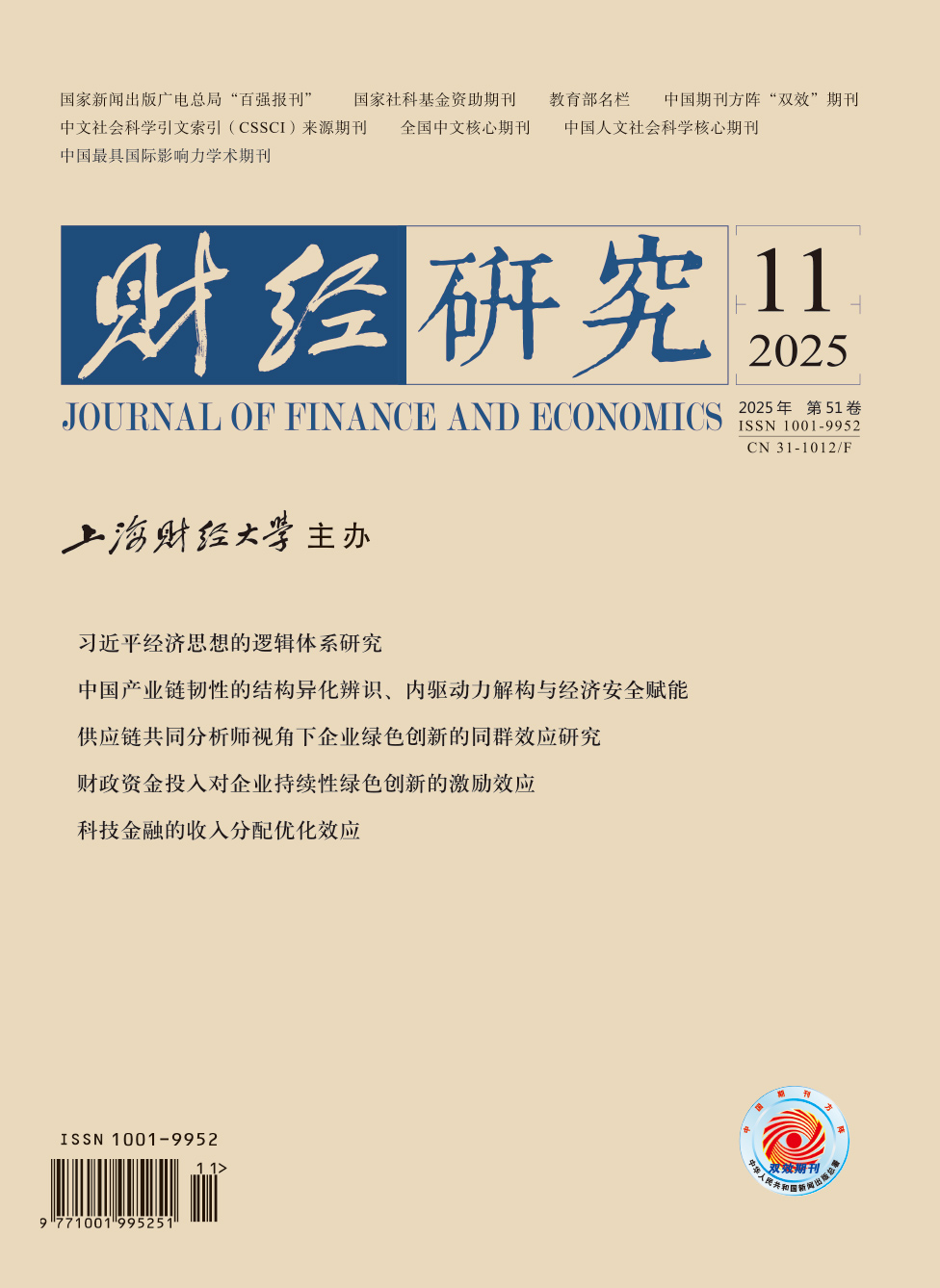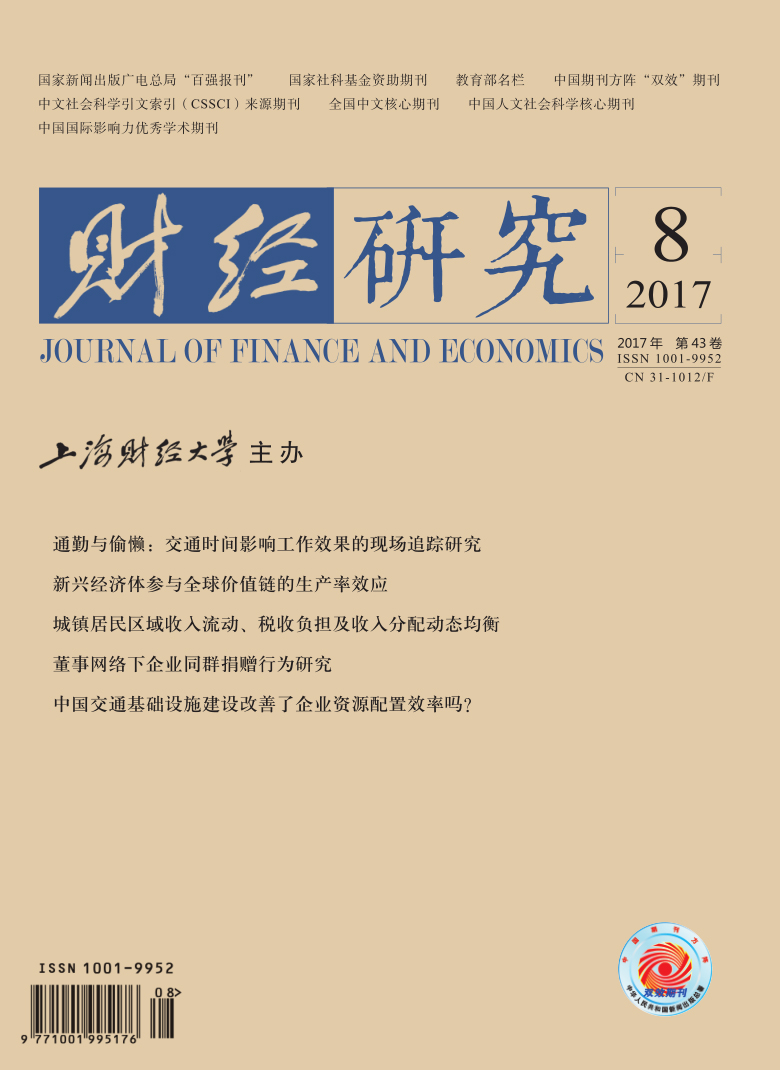在城市化过程中,交通拥堵成为饱受关注的大问题。国内外大量文献证实了通勤时间增加会降低个体的工作效率,带来更多的偷懒行为。然而,这些研究几乎都是基于横截面分析或静态分析。而文章则着眼于个体和企业之间动态博弈的长期均衡,证明了通勤时间增加在长期内会减少公司内偷懒者的总体数量或降低偷懒行为的总体水平。这是因为,通勤时间的增加会使偷懒者的效用损失更大,在长期内会提高偷懒者的失业概率,于是,在均衡时,公司的总体偷懒水平被"倒逼"到更低的水平上,进而企业和城市整体的效率水平得以提升。文章通过对典型工厂的现场追踪收集数据,并在此基础上进行了计量分析,研究结果证实了上述结论。文章的结论对中国的城市布局及其交通配置提供了如下政策启示:城市集聚过程中的交通高度密集在长期内有利于城市整体效率的提升。在城市化的过程中,城市管理者无需单纯缩短居民的通勤时间,而是要保持交通体系的适度密集,发挥城市密度经济的整体效率和动态最优。
通勤与偷懒:交通时间影响工作效果的现场追踪研究
摘要
参考文献
1 柴彦威, 张艳, 刘志林.职住分离的空间差异性及其影响因素研究[J].地理学报, 2011, (2):157-166. DOI:10.11821/xb201102002
2 吉昱华, 马松.集聚效应条件下的均衡城市规模及政策工具比较研究——一个总量生产函数框架及其模拟分析[J].财经研究, 2004, (11):94-105. DOI:10.3969/j.issn.1001-9952.2004.11.010
7 刘志林, 王茂军.北京市职住空间错位对居民通勤行为的影响分析——基于就业可达性与通勤时间的讨论[J].地理学报, 2011, (4):457-467. DOI:10.11821/xb201104003
11 Baran B E, Shanock L R, Miller L R. Advancing organizational support theory into the twenty-first century world of work[J]. Journal of Business and Psychology, 2012, 27(2):123-147. DOI:10.1007/s10869-011-9236-3
12 Barnett L A. Accounting for leisure preferences from within: The relative contribution of gender, race or ethnicity, personality, affective style and motivational oirientation[J]. Journal of Leisure Research, 2006, 38(4):445-474.
13 Burda M B, Genadek K R, Hamermesh D S.Not working at work:Loafing, unemployment and labor productivity[R]. NBER Working Paper No.21923, 2015.
14 Caesens G, Marique G, Hanin D, et al. The relationship between perceived organizational support and proactive behavior directed towards the organization[J]. European Journal of Work and Organizational Psychology, 2016, 25(3):398-411. DOI:10.1080/1359432X.2015.1092960
15 Golden B R, Zajac E J. When will boards influence strategy? Inclination×Power=Strategic Change[J]. Strategic Management Journal, 2001, 22(12):1087-1111. DOI:10.1002/smj.v22:12
16 Miles J A, Greenberg J. Using punishment threats to attenuate social loafing effects among swimmers[J]. Organizational Behavior and Human Decision Processes, 1993, 56(2):246-265. DOI:10.1006/obhd.1993.1054
17 Price K H. Decision responsibility, task responsibility, identifiability and social loafing[J]. Organizational Behavior and Human Decision Processes, 1987, 40(3):330-345. DOI:10.1016/0749-5978(87)90020-3
18 Robbins T L. Social loafing on cognitive tasks:An examination of the'Sucker Effect'[J]. Journal of Busi-ness and Psychology, 1995, 9(3):337-342. DOI:10.1007/BF02230973
19 Rong Z L, Cao G L. A framework for research and practice: Relationship among perception of organizational politics, perceived organization support organizational commitment and work engagements[J]. Open Journal of Business and Management, 2015, 3(4):433-440. DOI:10.4236/ojbm.2015.34043
20 Ross S L, Zenou Y. Are shirking and leisure substitutable?An empirical test of efficiency wages based on urban economic theory[R].IZA (Institute for the Study of Labor)Discussion Paper No. 2601, 2008.
22 Sparrowe R T, Linden R C, Wayne S J, et al. Social networks and the performance of individuals and groups[J].Academy of Management Journal, 2001, 44(2):316-325. DOI:10.2307/3069458
引用本文
魏翔, 刘文霞. 通勤与偷懒:交通时间影响工作效果的现场追踪研究[J]. 财经研究, 2017, 43(8): 4–17.
导出参考文献,格式为:





 9086
9086  8085
8085

